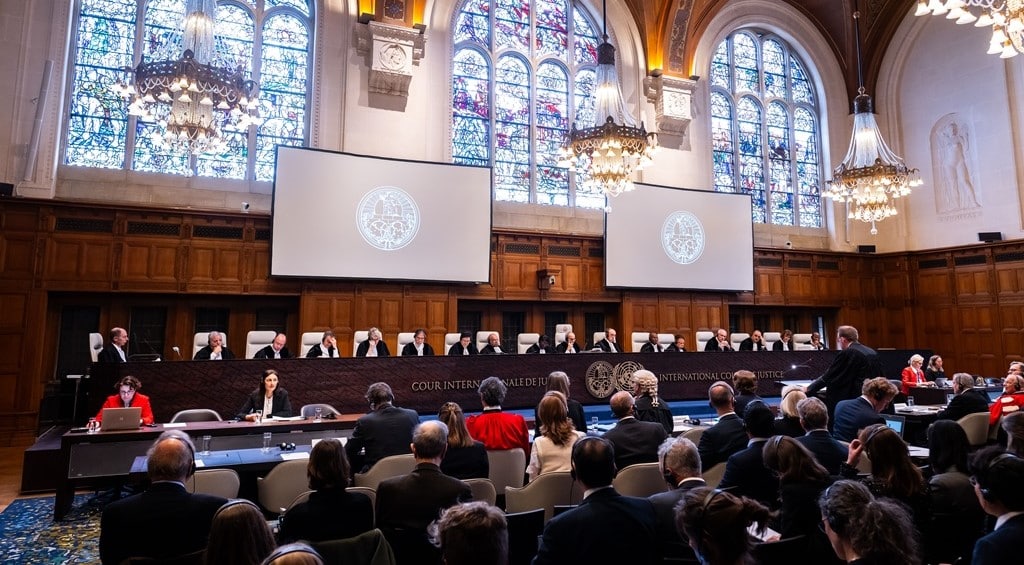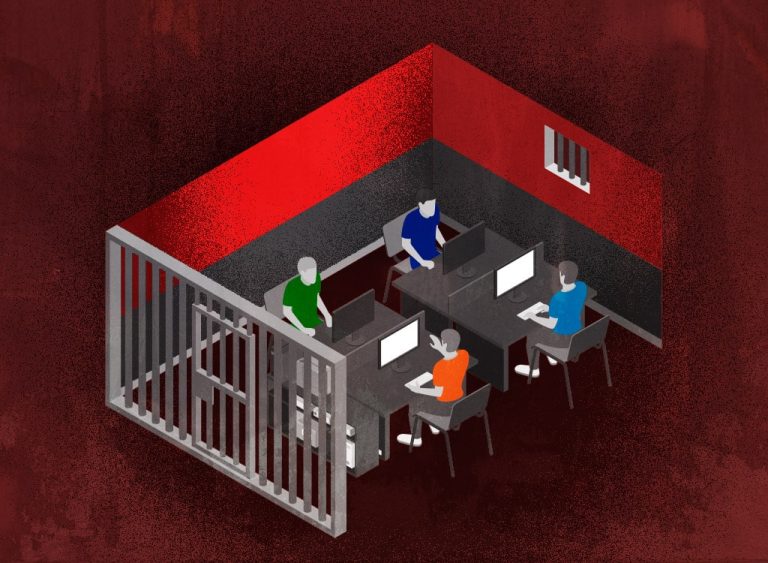29 de noviembre 2022

ICJ Rules Against Nicaragua's Request For Germany to Halt Arms Sales to Israel

PUBLICIDAD 1M
PUBLICIDAD 4D
PUBLICIDAD 5D
“There is a growing number of resignations, and many are thinking about migrating or putting a small store in their home,” says an INSS employee

“Manuel” says he is fed up. I had to vote in the municipal elections, controlled by the regime of Daniel Ortega and Rosario Murillo, and in addition I had to haul my whole family. This Ministry of Education worker feels “ashamed” of participating in what he calls an “electoral circus.”
“We were forced to vote. We had to prove that we did it, to haul people, and to make believe that we are celebrating the farce, so that they would appropriate all of Nicaragua’s mayoralties. It is a lie that not even they believe, but they want us to do so,” he comments.
“What is worse is that after this we have to continue being prisoners of the regime. We must continue withstanding the pressure and the spying. That is why many are resigning, and leave fed up,” he adds.
“Manuel” describes the work environment as “heavy” because “you have to be careful about what you say and of the looks you make when receiving an order.” “We are all prisoners in our workplaces, in the streets and even in our homes because we feel persecuted,” he details.
Since April 2018, the Ortega-Murillo regime has imposed a totalitarian state that controls public workers. To raise your voice, claim your rights or criticize, is not possible. Many have chosen to silently endure the arbitrariness of the regime, but increasingly, some are opting to resign or abandon their workplace to leave Nicaragua, or start a business or perhaps find another job.
In the last year, at least five Ministry of Education workers close to “Manuel,” have resigned. “They leave fed up,” he insists. “It is an open secret, but no one dares to say it, because there are people at work who would flag you and they will make you pay for it,” he warned.
“Manuel” assures that only among friends are you able to criticize something in your workplace. “There is increasingly more paranoia of those in charge and those who are subordinates. There is a lot of fear, because we know that if they catch you doing something they don’t like, they will make you pay for it,” he explains.
He notes that out of the five friends who resigned from MINED, three claimed medical reasons and two left the country without saying anything. “There are some in key positions in other state institutions that cannot resign and are under greater surveillance,” he points out.
“In my case, I have thought about resigning. My daughter and wife tell me to do it, that I should open a small used clothes shop or small restaurant instead of continuing to endure the situation, because we all know they are repressors, but things are not that easy,” he regrets.
“Jamileth” assures that working in the judiciary at this time is “dangerous,” because it has been one of the institutions in which more workers have been imprisoned, “including those who seem to be more loyal” to the regime.
“I would like to leave, resign and stop working for a government that has murdered and repressed the population, but unfortunately if I do so I put myself and my family at risk, including some that work for the state,” she assures.
She recalls that last year she wanted to go on vacation to the United States to visit some relatives, and was told that “absolutely not,” permission would not be granted. “They claimed that the elections were near, but I know that it is the same paranoia that they don’t want anyone to leave the country,” she reflects.
“Jamileth” says the cases against three Judicial Branch workers, supposedly close to magistrate Alba Luz Ramos; the resignation “under pressure” of magistrate Ileana Perez, who alleged health problems; and the detention of the spokesperson of the Supreme Court, Roberto Larios, “are evidence that here no one will be spared.”
“The state apparatus is controlled by those loyal to Daniel Ortega and Rosario Murillo and they have created a sort of ‘big brother’ that watches over everything we do and say. Now they only need to control everything we think,” she affirms.
In most state institutions in Nicaragua, there are a good number of workers who disagree with the repression against the Nicaraguan people, with the 2018 massacre and the manipulation of trials against political prisoners.
“There are many people who disagree with the repression and the massacre the government committed,” assured Ligia Gomez, a former executive of Economic Research of the Central Bank of Nicaragua, in an interview with Esta Semana in 2020.
Last October, “Sergio,” a Judicial Branch official since more than a decade ago, gave an interview to Confidencial and Esta Semana, in which he narrated the weariness and fear of public officials. He shared that, although they cannot express their dissident opinions in public, many in that branch of the state, including those who hold high positions, do have them. They believe the regime and the Sandinista Front has committed serious mistakes, among them persecuting and imprisoning members of the Catholic Church or by isolating Nicaragua internationally.
“Alice,” also a professional who has worked for more than 20 years in the state, and who currently holds a position at the management level of an institution, told Esta Semana that she has witnessed the intensification of the political surveillance exercised by the regime against public employees. “We feel like hostages,” she assured, and described that the control system exists, not only for fear of losing our jobs, but also of “exposing oneself to being imprisoned or even losing one’s life.”
“Noel,” a worker of the Nicaraguan Social Security Institute (INSS), noted that all of the repressive acts of the regime “are intended to instill fear, both in state workers and the population in general.”
“Their message to us is clear: here we don’t respect anyone because of their age, nor religious leaders, nor people who at a certain time were friends of the dictators,” he remarks.
This public employee believes that it is “deplorable and it is not known when it will end,” but he assures that he has seen “with outrage the arrests and repression against people who did nothing more than help, such as the nuns of the Missionaries of Charity.”
“These are inexplicable attacks,” he says. That is why he sees it as normal that in the INSS and other state institutions there has been an increase in resignations in recent months.
“We all know someone: a neighbor, a friend, or a co-worker who has left the country. They’d rather take their chances than to continue enduring in this country adrift,” he thinks.
“Noel” mentions that “there are more and more resignations” and that among his inner circle “many comment that they are thinking about migrating or putting a small shop in their home.”
For “Veronica,” a worker in a health center, it is annoying to have to participate in marches and mandatory political activities of the government. “But there are many people who love to do those things, to waste time or because they are fanatics.”
“The danger in all institutions is that there are compliant people who go around spying on others and looking to find who might be a traitor. Fear exists and that is what they have made us believe, and that is why there is a lot of fear within the institutions,” she asserts.
She admits that any criticism, no matter how simple, “is frowned upon” and is even sufficient motive “for your supervisor to call you in and ask you to reflect.”
Her husband has tried to convince her to resign, and she does not rule out that at some point she will leave the country. “One feels that for what you get paid it is not worth it to withstand the pressure, but above all, she adds, you can’t stand living under a dictatorship that suffocates you.”
This article was originally published in Spanish in Confidencial and translated by Havana Times
PUBLICIDAD 3M
Confidencial es un diario digital nicaragüense, de formato multimedia, fundado por Carlos F. Chamorro en junio de 1996. Inició como un semanario impreso y hoy es un medio de referencia regional con información, análisis, entrevistas, perfiles, reportajes e investigaciones sobre Nicaragua, informando desde el exilio por la persecución política de la dictadura de Daniel Ortega y Rosario Murillo.
PUBLICIDAD 3D